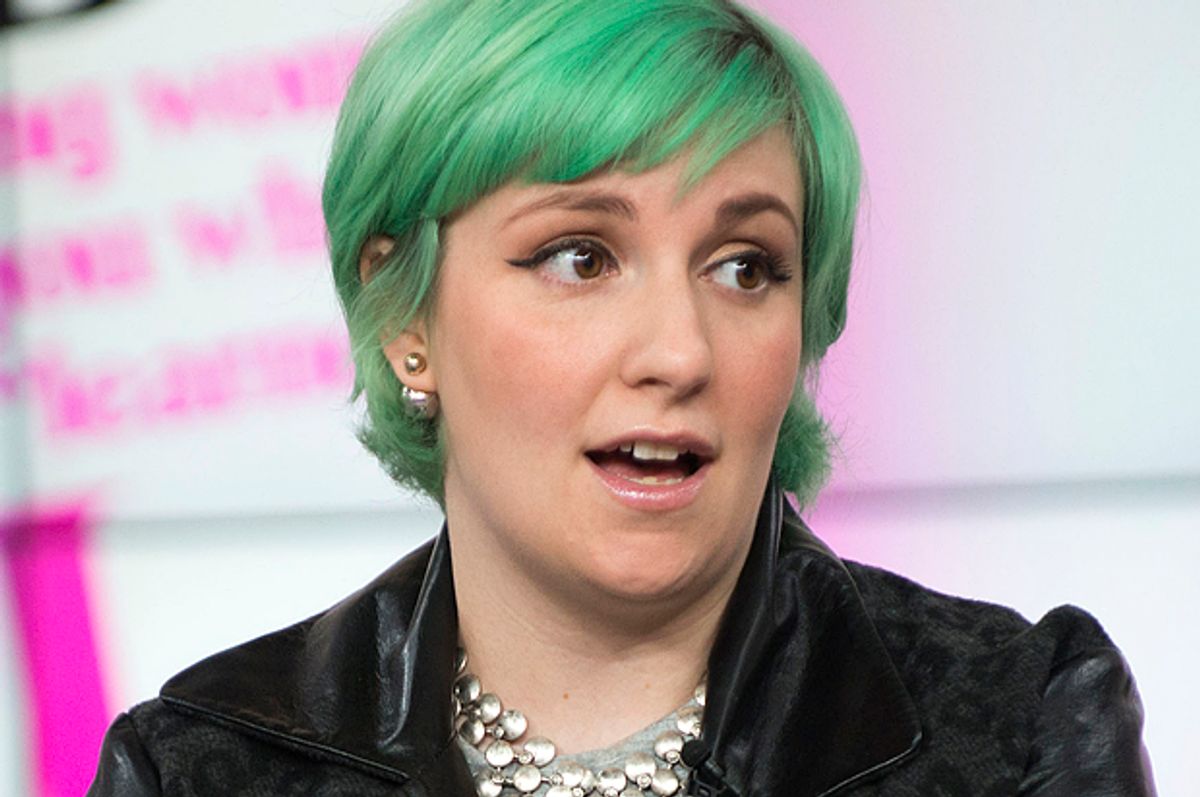It seems everyone and their mom wants to weigh in on whether Lena Dunham is a child molester. But there is only one kind of person that I actually want to hear from on this: experts. People who have devoted their lives to researching, treating and preventing child sexual abuse. Folks who are the most sensitively and acutely attuned to detecting abusive behavior. Professionals who actually have an empirical sense of what is normal childhood behavior.
Well, I found those people. The most expert of experts on this topic. And they say Lena Dunham is no child molester. Or, more accurately, the behaviors that Dunham describes in her memoir are not child sexual abuse.
David Finkelhor, director of the Crimes Against Children Research Center, has devoted his career to researching child sexual abuse. He’s the author of such titles as “Sexually Victimized Children,” “Childhood Victimization,” “Child Sexual Abuse” and “Nursery Crimes.” I guess you could say he’s an expert on the topic? And this is what he had to tell me in response to claims that Dunham is a sexual abuser: “In the sexual abuse field, we generally do not consider children age 7 as sexual abusers.”
Instead, he explains, “we are concerned about children that age who are ‘sexually reactive,’ meaning sexualized in a developmentally inappropriate way” or “being aggressive toward and exploitive of” their siblings or peers. That’s because that behavior can be “the sign that they themselves has been abused or subjected to developmentally inappropriate material,” he said. As for whether Dunham’s behavior was “sexually reactive,” he says “a judgment would typically require more than a single episode, especially in younger children who may not be aware of norms.” He’s not exactly calling CPS, y’all.
But he’s only the director of the Crimes Against Children Research Center, so I decided to talk to some other sources.
Sharon Lamb, author of several research papers on child sexual abuse, including, “‘Normal’ Childhood Sexual Play and Games: Differentiating Play From Abuse,” says of Dunham, “This is really within the norms of childhood sexual behavior,” she says. “Absolutely.” When Lamb, who has provided courtroom psychological evaluations of sexual abuse in children, interviewed therapists for her other book, “Sex, Therapy, and Kids: Addressing Their Concerns Through Talk and Play,” she encountered lots of similar tales.
Lamb, a professor of counseling psychology at the University of Massachusetts, Boston, notes that older siblings are often somewhat coercive of young siblings, and it’s the job of parents to help regulate that behavior. “If an older sibling was making a younger sibling drink a horrible concoction they made while pretending they were playing witches, that would be wrong,” she said. “It would be the same in imposing some kind of sexual play. It wouldn’t be sex offender wrong, it would be inappropriate and coercive and ‘you have to be nicer to your younger sister.’” Lamb notes that Dunham's pebbles-in-vagina discovery would have been “a good opportunity to teach a little girl that you don’t play with other people’s private parts without their consent.”
The overreaction to incidents like this only serves to reinforce sexual shame in our culture. “It makes many adults ashamed of what was very normal sexual play in their childhood,” she says. “And it makes people buy into this idea that children themselves aren’t sexual, which is totally wrong.”
Amy Lang, a parenting and sexual health expert, told me, “First of all, it’s totally normal for kids to be curious about each other’s private parts and the fact that she checked out her sister’s vulva — not vagina, that’s inside and hard to see — is completely typical behavior." As for bribing her sister for attention — via doing her hair, practice kissing, etc. — she says, “This isn’t exactly typical and in some ways, yes, it’s grooming, but in other ways, it’s merely a young girl, looking for affection and figuring out a ‘clever’ way to get it,” she says. “Was it OK? No — bribing never is OK, especially for sexual behavior.” She adds, “Any kind of kid sexual behavior can move from mere curiosity and play to becoming more concerning and more adult-like and sexualized. It seems from her story, it didn’t move much beyond practicing kissing — a totally typical 7-year-old girl behavior — and bribing. Siblings bribe each other to do all kinds of things, good, bad or ugly.”
So some of the behaviors that Dunham describes are perfectly healthy and normal. Some amount to “bad” behavior. None amount to “sexual abuser” or “child molester.”

Shares